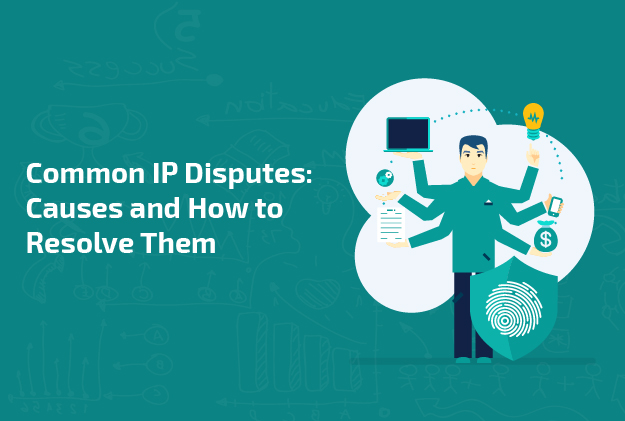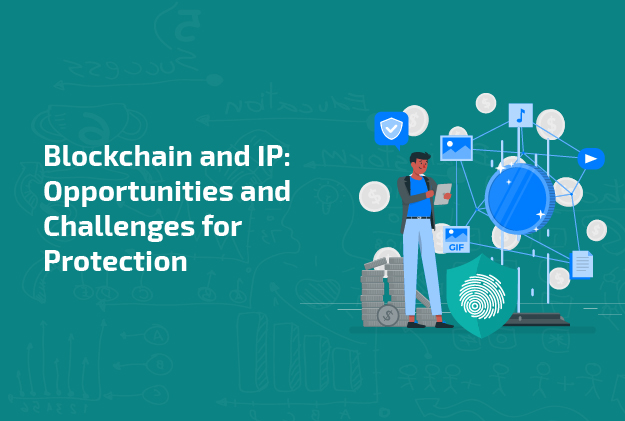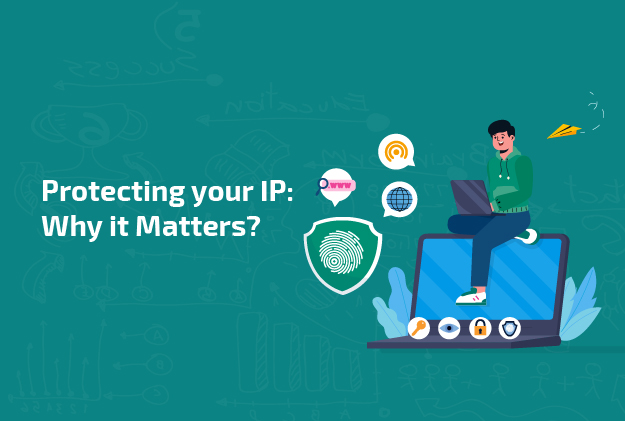The role of intellectual property is central. This comprehensive blog explores how intellectual property fuels innovation in startups and small businesses and serves as a critical weapon in the battle against counterfeit goods.
The Impact of IPR Benefits on Startups and Small Businesses
Innovation lies at the core of startups and small businesses, and intellectual property rights serve as a powerful tool to encourage and protect such creativity. Startups often operate in dynamic sectors where groundbreaking ideas and technological advancements can make or break their success.
Intellectual property plays a crucial role in driving innovation, fostering competition, and protecting the rights of creators and inventors. Intellectual property rights are particularly significant for startups and small businesses as they provide a foundation for growth, differentiation, and market advantage. By obtaining patents and trademarks, startups can protect their novel inventions and technological breakthroughs, securing exclusive rights to commercialize their innovations.
Intellectual property rights enhance a startup’s market position and contribute to its overall valuation and attractiveness to investors. A robust intellectual property portfolio signals to investors that the startup has a unique selling proposition and a defensible market position. Startups with secured intellectual property rights are more likely to secure funding and forge partnerships with established companies, fostering startup success and scalability.
The Importance of Intellectual Property Rights Explained
Understanding the significance of IPRs is essential in various contexts, and below are key pointers that emphasize their importance:
Encouraging Innovation and Investment
Intellectual property rights, such as copyrights, patents, and trademarks, incentivize startups and small businesses to invest in research and development. The exclusive rights granted through intellectual property protection allow businesses to commercialize their innovations, knowing they can enjoy a competitive advantage and recoup their investments. This encourages entrepreneurship and fosters a culture of innovation, benefiting the overall economy.
Market Differentiation and Brand Building
Trademarks play a crucial role in differentiating startups and small businesses in crowded markets. A strong brand identity protected by trademark rights enables them to build customer loyalty and stand out from competitors. For example, the case of Airbnb highlights how trademark protection helped establish a recognizable brand in the highly competitive hospitality industry, contributing to its exponential growth and brand protection.
Securing Market Position
Patents provide startups and small businesses with a means to protect their technological inventions and prevent competitors from copying or exploiting their innovations. Patents grant exclusive rights for a limited period, allowing businesses to establish a market position and potentially license or monetize their patented technologies. An illustrative case is that of Nest Labs, which secured patents for its innovative smart home devices, helping the startup to attract investors, and eventually be acquired by Google in 2014.
Attracting Investors and Financing
Intellectual property rights enhance the value and attractiveness of startups and small businesses to potential investors and financiers. Investors often consider the strength of a company’s intellectual property portfolio as an indicator of its competitive advantage and growth potential. Patent portfolios, for instance, can provide startups with an asset that increases their valuation and attracts venture capital funding.
The Battle Against Counterfeit Products
Counterfeit products have become pervasive in today’s global marketplace, impacting industries and consumers. Counterfeit products pose significant risks to economies, businesses, and individuals, from luxury goods and electronics to pharmaceuticals and everyday consumer items. Counterfeiting refers to the unauthorized reproduction or imitation of products, often designed to deceive consumers by mimicking the appearance and branding of genuine goods. The prevalence of counterfeiting and copyright infringement has been amplified in the digital age, where advancements in technology and global trade have made it easier for counterfeiters to produce and distribute their illicit replicas.
Counterfeit products significantly threaten the global economy, consumers health and safety, and the integrity of brands and businesses. Today, information and products can be easily replicated and distributed; therefore, the role of intellectual property rights in combating counterfeiting has become increasingly crucial.
The Growing Problem of Counterfeit Products
Counterfeit products encompass a wide range of goods, including luxury items, electronics, pharmaceuticals, and even food and beverages. These counterfeit goods not only deceive consumers, but also undermine the economy, erode brand value, and support criminal activities. According to a report by the Organization for Economic Cooperation and Development (OECD) and the European Union Intellectual Property Office (EUIPO), counterfeit trade accounts for approximately 3.3% of global trade, amounting to billions of dollars in yearly losses.
Renowned Brands v/s Counterfeit Products
Let us go through some case studies featuring renowned brands going up against counterfeit products:
Nintendo’s Fight Against Counterfeit Games
Nintendo, a major video game company, is actively combating counterfeit games that infringe on their copyrighted software. Nintendo collaborates closely with Internet-monitoring agencies and domestic and international enforcement authorities to effectively combat piracy, emphasizing the real consequences of illegal activity. They educate customs and law-enforcement authorities on identifying counterfeit products and seek international government officials’ help to combat video game piracy. Additionally, the company works in tandem with industry associations worldwide, joining forces with other industry players to combat piracy collectively and advocate for legislative improvements.1
Louis Vuitton vs. Counterfeit Handbags
Luxury fashion brand Louis Vuitton faces challenges protecting its iconic designs from counterfeiting. They employ strategies like legal action, collaboration with law enforcement, and consumer awareness campaigns. Vigilant monitoring helps identify counterfeit sellers, leading to legal actions that shut down operations and seize fake products, ensuring trust in authentic goods.2
Apple’s Battle Against Counterfeit Accessories
Tech giant Apple confronts counterfeit accessories like chargers and cables, posing trademark infringement and safety risks. Apple has a specialized team of professionals that remains continuously engaged in collaborating with law enforcement agencies, social media platforms, and online marketplaces across the globe to eliminate counterfeit goods from circulation. These efforts reduce the availability of fake Apple accessories, ensuring consumer safety, copyright protection, and brand integrity.3
Conclusion
Intellectual property rights serve as catalysts for innovation in startups and as shields against counterfeit products. By actively protecting intellectual property, businesses, governments, and international organizations can safeguard consumers, support innovation, and preserve the integrity of industries and economies globally. As startups continue to leverage the power of intellectual property, they pave the way for innovation, growth, and prosperity in the entrepreneurial ecosystem.
References
- https://in.louisvuitton.com/eng-in/magazine/articles/brand-protection#preserving-creativity












